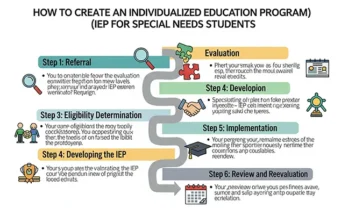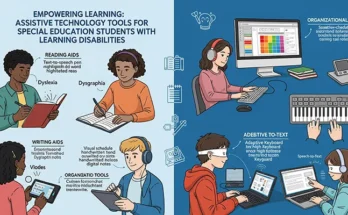College success occurs as a result of effective academic, communication, and social skills. This presents a challenge to mainstream students but can often cause the demise of students with learning disabilities. Fret not, however. Rather than dwell on the difficulties you experience with these skills, concentrate on practicing the strategies below to overcome these challenges. Without further ado, here are four skills you need to master to achieve college success.
Associating with Professors
- Introduce yourself to your professors, so they can associate your name with a face. Make an effort to speak with the professor privately, especially, if you are struggling in the class.
- Take advantage of the opportunity to utilize professors’ office hours. One of the prime purposes for office hours is to help students.
- Avoid irritants to professors such as:
- Sleeping in Class- Not attending Class- Not reading syllabus- Lack of responsibility- Excuses and not meeting deadlines- Insincere brown nosing
- Do not hesitate to ask professors for copies of old exams to practice studying. The questions may change, but usually the style of the exam remains the same..
Managing Your Time
- Quickly learn to say NO to distractions of all kinds (movies, partying, overeating, game playing, etc…). It is the mature decision to avoid activities that sabotage your progress.
- Daylight hours are the best time to study and retain information.
- Study for short, frequent sessions to assure that your concentration remains at 100%..
- Try multi-tasking to squeeze in more study time. For example, commuting time is ideal for getting in extra study time effortlessly. Keep a lecture tape in your car. Listen or use earphones when on the bus, train or car pool. While doing laundry, listen to your study tapes.
- Allow 2 – 3 hours of work and/or studying for every hour you spend in class.
- PRIORITIZE – Use a daily list of what you need to study; Set times for each item and keep with it rigorously.
Exercise Your Brain Capacity
What can you remember?
Study the big picture, then learn the details. Memorize from general information to specific details. Picture a funnel with its wide circle down to the narrowed tip. Learn and memorize the large general concept (the whole picture outlook) and then narrow down to the details.
Cramming is a waste of time because studying is done long past attention has expired. Cramming may be sufficient to get information into your short-term memory, but that information is likely to evaporate due to nervousness that can accompany an exam. The information sent to your short-term memory will not last until the final exam unless practiced at regular intervals.
Why do we forget pieces of information?
1. We do not use the information often enough.
2. Information not learned or studied properly
3. Confusion with other subject matter
4. Decide that the information does not parallel what we believe
Steps to Remember
1. Pay attention! Consciously choose to remember. Be Interested! Establish a need to retain the information.
2. Take a picture in your mind of what you need to learn. Visualize.
3. Connect and form associations between the new material and information of ideas, persons, places, and things that you already know.
4. Repetition is the best way to over-learn and recall information. Translating information into your own words results in retention.
Take Notes
Fundamentals
1. Use loose leaf notebook divided into subject sections
2. Title and date each sheet of loose leaf paper as you use it
3. Brief, clear notes are more effective than profuse explanations
4. Consolidate your old lecture notes into a new set of notes or outline.
Lectures
1. Avoid distractions by sitting near the front of the class.
2. Concentrate on the main points of what is being presented. Take notes and put them into your own words later.
3. Ask questions on what is not clear to you.
4. To aid retention, review your lecture notes within 24 hours.
While college life is fun, remember the primary reason you are there: to work hard and learn for the purpose of expanding your future options. You are the key to your own success. If you use your resources properly and utilize tips and strategies to compensate for your weaknesses, you are likely to experience smooth sailing, with the occasional rough wave, during your college experience.





